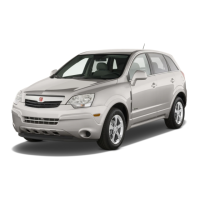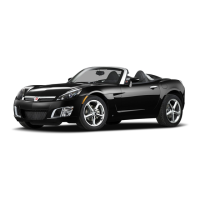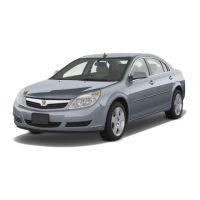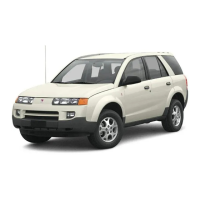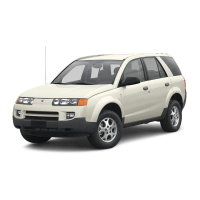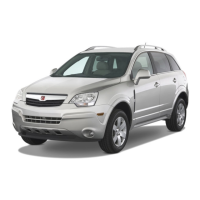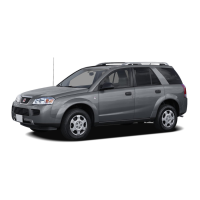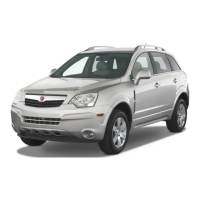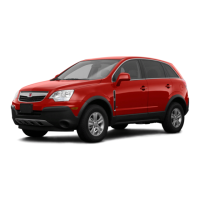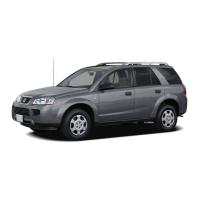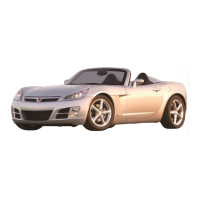{ CAUTION
Fans or other moving engine
parts can injure you badly. Keep
your hands away from moving
parts once the engine is running.
5. Check that the jumper cables
do not have loose or missing
insulation. If they do, you could
get a shock. The vehicles
could also be damaged.
Before you connect the cables,
here are some basic things you
should know. Positive (+) will go
to positive (+) or to a remote
positive (+) terminal if the vehicle
has one. Negative (−) will go to a
heavy, unpainted metal engine
part or to a remote negative (−)
terminal if the vehicle has one.
Do not connect positive (+) to
negative (−) or you will get a short
that would damage the battery
and maybe other parts. Do not
connect the negative (−) cable to
the negative (−) terminal on the
dead battery because this can
cause sparks.
6. Connect the red positive (+)
cable to the positive (+) terminal
on the vehicle with the dead
battery. Use a remote positive (+)
terminal if the vehicle has one.
7. Do not let the other end
touch metal. Connect it to the
positive (+) terminal of the good
battery. Use a remote positive (+)
terminal if the vehicle has one.
8. Now connect the black
negative (−) cable to the
negative (−) terminal of the
good battery. Use a remote
negative (−) terminal if the vehicle
has one.
Do not let the other end touch
anything until the next step. The
other end of the negative (−)
cable does not go to the dead
battery. It goes to a heavy,
unpainted metal engine part or to
a remote negative (−) terminal on
the vehicle with the dead battery.
9. Connect the other end of the
negative (−) cable away from the
dead battery, but not near engine
parts that move. The electrical
connection is just as good there,
and the chance of sparks getting
back to the battery is much less.
Service and Appearance Care 5-33
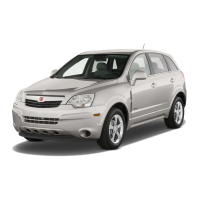
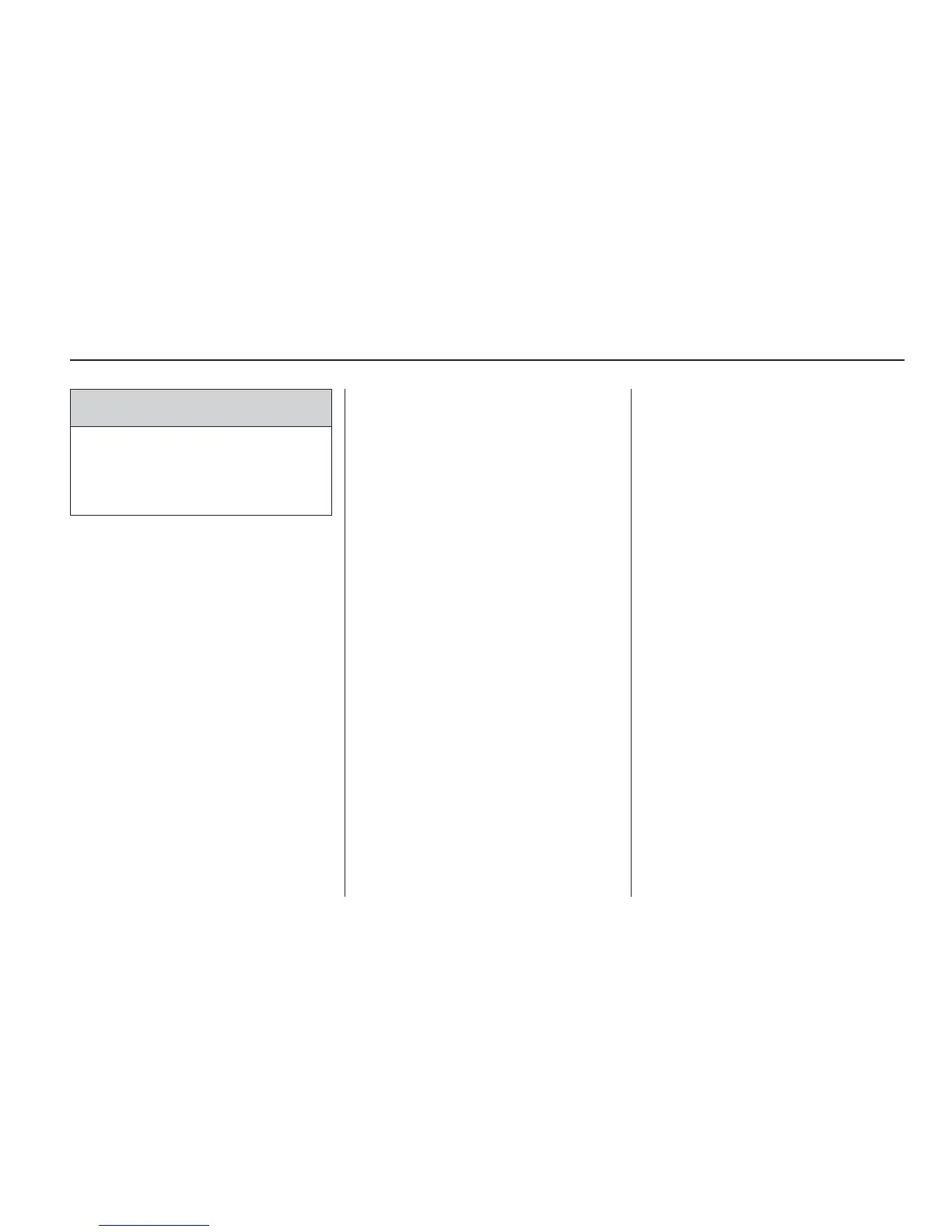